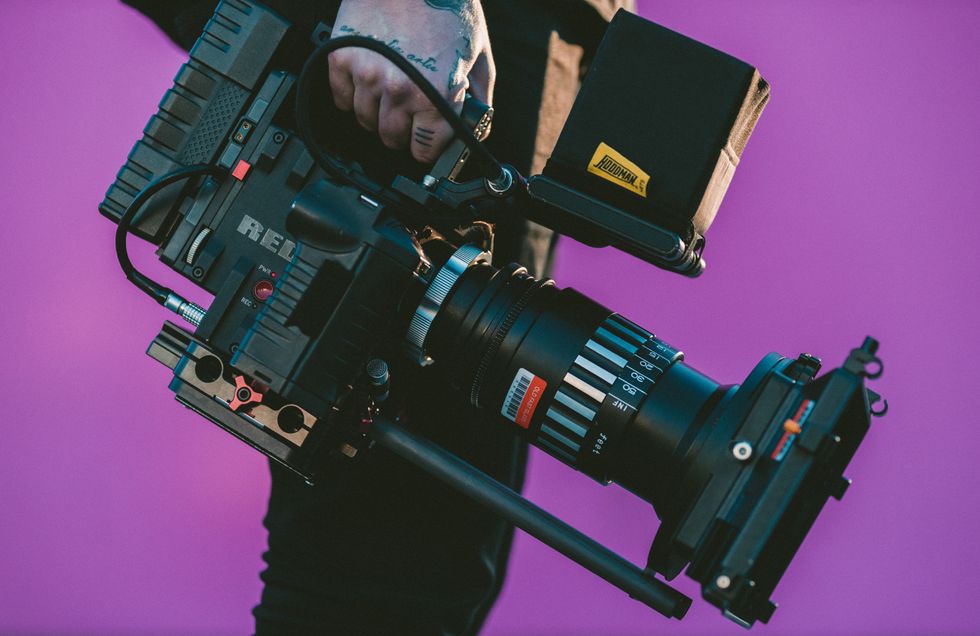In November I began working at Channel 7 WHIO News here in the Miami Valley as a studio technician. My responsibilities in this position include preparing the studio for the live broadcasts (checking mics, IFB wireless packs, changing lights) and also running the teleprompter for the anchors. I'd like to share some interesting and surprising things that I have learned so far working in this industry.
1. Terrible things happen every day in my own small midwest community.
This is sadly true for most cities all over the world.
I grew up believing that I lived in the safest place on the planet here in suburban America, but newsflash (pun intended) bad things happen everywhere. My first few weeks working for my local station were depressing, to say the least. Daily I helped broadcast stories about innocent people killed in drive-by shootings, children hit and killed by vehicles, young athletes sexually abused by their coaches, and grocery stores relocating leaving food deserts in my own city. Though I will never come to grips with the awful things that happen to people every day in our world, I did come to see these as opportunities to be involved in my own community and to help positive change happen. There is much work to do in the world to make it a better place and there is no better place to start than in your own home.
2. Everything is written with viewers and ratings in mind.
As you may have expected, there are plenty of stories and headlines that act as bait to reel in an audience. I don't see this as a despicable practice because it is the only way a media source can thrive in this information era. That being said, viewers need to be cautious when watching sensational segments; every sound byte you hear from someone in your community was prompted by a question that you don't actually get to hear the anchor ask.
3. As an avid procrastinator, I was happy to see that the show is thrown together literally at the last minute.
I was amazed to watch the show get created right before my eyes in the hours and minutes leading up to our standby cue. When you watch the news as a viewer it is hard to comprehend all the moving parts of the show. Producers and writers all work with the anchors to write scripts, prepare video clips, edit sound bytes, and program camera cues literally minutes before it ends up on your screen.
4. There are hundreds of people doing jobs you didn't even know existed to make the news happen.
Hand in hand with my last point, I have met so many incredible people that work jobs I didn't even know existed prior to joining the NC7 team. I am sure this could be said for many industries, but I have a new appreciation for it in live TV. The TV world only highlights those few people on camera, but truthfully there are many many people who make the show what it is.
5. The days of cameramen, soundboards, and on floor producers are long gone and have been for some time now
This was a huge surprise to me. When I was applying for this job I imagined working in a studio full of people; cameramen turning tripods and focusing lenses, soundboard operators checking mics, and technical directors giving time cues. Yet, when I started training, I realized on a regular show, there are only 4 people actually in the studio- two anchors, one meteorologist, and me. Everything else these days is automated. Our cameras turn on mechanical swivels, our audio is automated in software, and the studio tech gives time cues that he receives from the Technical Director on a headset in a different booth. This leads me to believe that new technology will not kill Live Television, but revolutionize it in the future.















